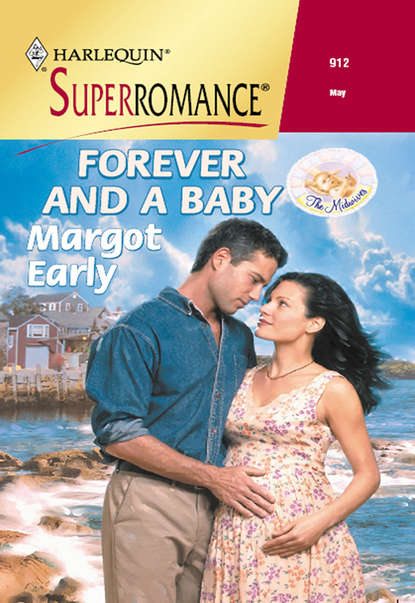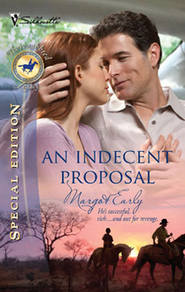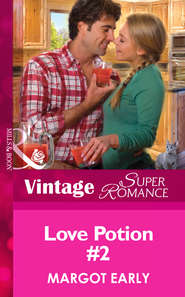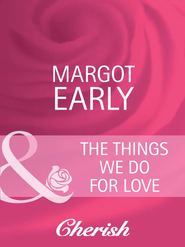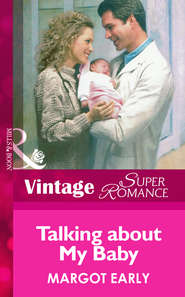По всем вопросам обращайтесь на: info@litportal.ru
(©) 2003-2024.
✖
Forever And A Baby
Автор
Год написания книги
2018
Настройки чтения
Размер шрифта
Высота строк
Поля
Dru put her hands up and shoved.
Her palms had barely connected with his chest when she flew backward. He caught her. Other than that, he hadn’t moved at all.
“Don’t,” she said. She was glad of her shoes, trail shoes for running the dogs on gravel, because she ran through the moisture and the rain and the smell of fish, good and bad, and the smell of this centuries-old port. She ran, wondering if Omar had told Ben to try this as a last resort. Omar, who had avoided meetings with her, the days—and nights—they’d promised to spend together. He wouldn’t. He wouldn’t. Wouldn’t avoid her. Wouldn’t want her to choose Ben, his own nephew.
She ran behind buildings and found an alley and hurdled its fish scales and grease, sprinting until she reached the docks again. Alone, unseen, she wandered until dark, searching for the gray-haired man with the beak nose and her blue eyes and Tristan’s hollow cheeks and the cowlick on the right side. The man she believed, in the wetness rising from the sea, was her father. Her father, who had somehow never died.
EARLY IN HER MARRIAGE, Dru had fallen in love with anonymity. She liked to travel, to be on the move. She found a way to be unknown and close to the memories she loved, to her twin’s existence, to her father’s grave. To the ocean. In port cities, she bought boats with Omar’s money and registered them to her loved ones. Keziah’s Sunshine Daydream hailed from Portland, Maine. Her mother’s Hot Babe was berthed in Key West. Tristan’s trawler, Cup of Gold, in Gloucester. And so on. The boats floated but did not always run. They were low on conveniences. Floating hovels. They were refuge. Her hostels and hotels.
When darkness came, she returned to the thirty-foot trawler. Somewhere, Ben Hall, journalist and trained observer, must be watching. But not for a story. She knew better, knew the quality of her family’s ties. Still—I don’t want to be followed. Why hadn’t she ordered him to stop?
Because he was Omar’s employee.
Below deck in the trawler Cup of Gold, she cooked the simplest of meals, ate and wished for a phone. She’d have to walk to the pay phone to call Omar. 53 telephone conversations. 311 calls.
She washed dishes.
Yes, she must walk, in the dark, to call her husband.
312.
She worked up to it as she dressed. A thick sweater, Nantucket wool. A wool cap that had been her father’s, moth holes mended with her own hands. Her wet trail shoes, in case she had to run. Water licked the boat. Dru hugged herself and slipped out of the cabin into the wet cold and the silver-lit night. Security lights. Snow air.
“It occurred to me a few times that I should give you some pointers.”
Dru banged her shoulder on the door frame. She locked the cabin door behind her. She liked him no better as a shadow. “Do you need some pointers? Let’s see, in Arabic, it’s ‘Ma’assalama.’ In Tamashek, it’s ‘Harsad.’ In English, we say goodbye.”
He shifted on the aft seat. “Let me start over.”
“You could leave. That would be a start. Of the end.”
“I had an idea that if you were set on this plan Omar told me about, I could—”
“Procure? Is that the word you’re looking for?” What was it about harbors that made everything echo?
He cleared his throat. “Help. Was the word.”
In the milk-black light, misty and heavy, Dru raked his jaw with her eyes. I want my husband. I want to have Omar’s baby, and it’s impossible, and maybe he’s become indifferent to me because of this, our infertility. I’m not going to discuss it with Ben Hall. She must get to a phone and hear Omar’s voice, his love for her. She must go home. Maybe before the Sarah Lynnda docked with thousands of pounds of swordfish in her hold.
Dru bundled her heavy sweater about her.
“Want to share a bottle of wine?”
Beside him in a paper bag. Big enough for glasses, too. The sea rolled beneath them, lifting the boats and the dock, everything singing. “Why?”
“Because, through the medium of conversation, you may find me irresistible.”
Wood and floatation bending and straining, stays pinging masts. A fish jumped nearby, invisible.
“I find my husband irresistible. And you are one of his employees.” She had never spoken to anyone this way. Family, no less. “Go away. Leave me alone.”
“You know, twenty years ago, in a Rashaida camp, besides failing to conceal your—”
“Shut up. We were children. And, yes, I had a crush on you.”
“Betrothed is the word. Ignoring our interesting child marriage, of course.”
“What marriage?” She snorted. “And the engagement was conditional at best. The bride price you offered was paltry. An intentional insult.” But her eyes steamed. Children bickering in the aftermath of trauma. Their innocence blocking out what they’d seen and heard. She closed her eyes.
“When Haamda told our fortunes before—”
She cut him off. “Who? I don’t remember.” He was courteous not to take her bride-price remark further, not to follow it up with an allusion to Omar’s wealth. Especially tonight when Dru wore her watch—but not her rings. She would put them on when she returned from the phone. “For your information, I won’t be looking for any more men or meeting them. Except my brother, if he comes in soon.”
She listened to the harbor.
He watched her. “That leaves me.”
Him? She moved closer, so he could hear her, and sat on a wet aluminum chest. “No. My husband has hired you, perhaps as a last resort. He probably finds you trustworthy, sufficiently intelligent and adequately attractive. Also, you live a reckless life in dangerous locations and are likely to die prematurely, not that anyone wishes it. You resemble him faintly, even with no blood relationship, and we’ll probably never see much of you. The fact that you’re family is another plus.” She paused, not looking at him. “Our family has a genetic predisposition for dissembling. Even, I imagine, the journalists. Especially them.”
Dru met his gaze. Poets recorded these echoes of the eyes.
“If you’ll give me your keys and direct me to a corkscrew, I’ll open the wine. Don’t make me drink it alone.”
She stretched out a leg to dig in the pockets of her jeans. The hand that took the keys from hers was a strong, lean shadow. His movement past was athletic darkness, muscle unseen.
Dru shivered. No thoughts. Nothing to think about. Just some wine after dinner with a man who obviously wasn’t much of a drinker, living as he did in North Africa and the Middle East, sometimes crossing down to Mali or Niger for a story. As much a nomad as his father, Robert Hall.
He brought the bottle and glasses to the deck. “It’s warmer below.”
“And cleaner up here.”
It was a merlot, poured by those strong, lean hands. Smooth, olive brown, she saw. The wine was good.
She didn’t thank him.
“Omar,” he said, “never suggested that I should make love with you.”
Her toes were cold, and she wiggled them in her wool socks and running shoes. Omar seldom used that expression, found other ways to speak of intimacy. She missed Omar deliberately, missed his intelligence. She remembered their first year together, how he’d begun to explain finance to her, explained it in philosophical terms all his own. The tutelage had never ceased. He understood the sciences—and human nature. His were the genes she wanted to reproduce.
But no chance. His fall had stolen the chance of their conceiving together. It had happened on their honeymoon, while bicycling in Utah’s canyonlands on their honeymoon, both of them impressed by how fit he was at sixty-one. They hadn’t known that the fall had rendered him sterile, although they’d wondered. And discovered this year.
Omar’s line had ended.
She said, “Don’t you think that men perceive children as the means to continue their line, while women are more involved in being pregnant and giving birth and nursing and having and raising a child?”
“In love, you mean?”
Lightly deflecting the slur on his gender.





